 Back to the Be Inspired Blog
Back to the Be Inspired Blog
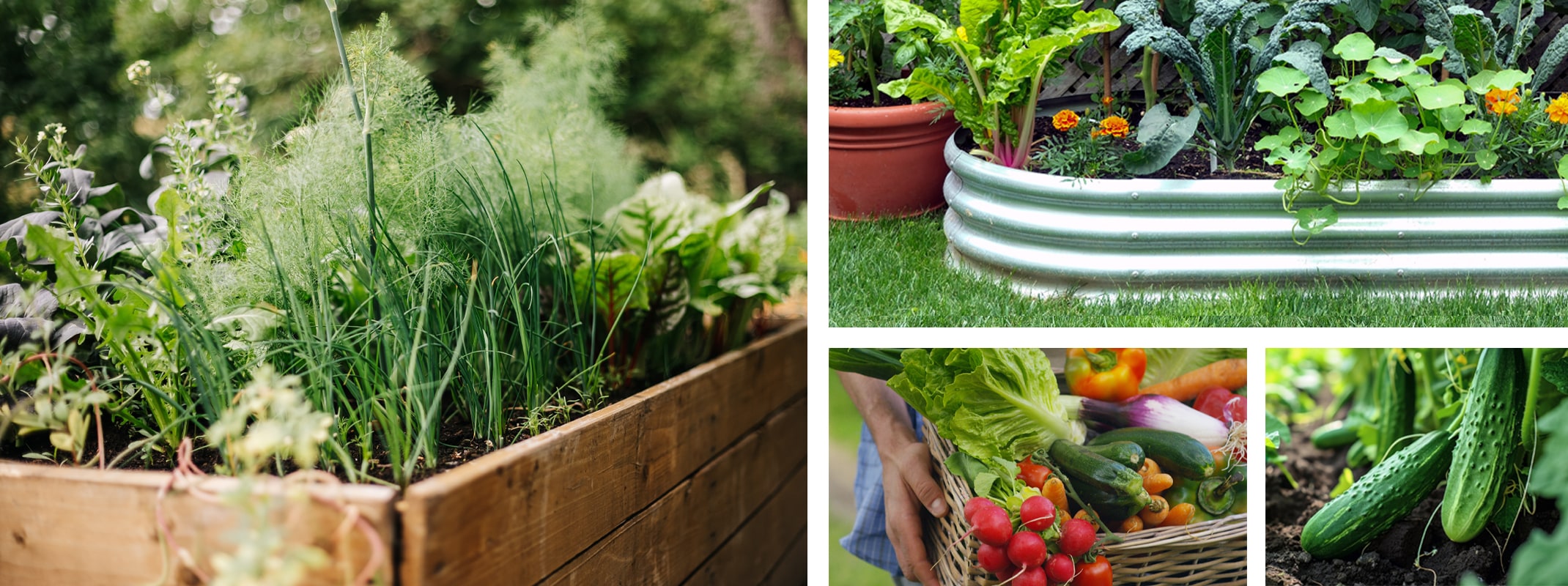
How to Grow A Delicious and Healthy Organic Garden
Growing your own organic garden is one of the most rewarding things you can do. Not only does it provide fresh, flavorful produce, but it also supports a healthier lifestyle, reduces environmental impact, and helps create a thriving backyard ecosystem. Whether you're a beginner or a seasoned gardener, these organic gardening tips will set you up for success.
Why Grow an Organic Garden?
Organic gardening is more than just a trend—it’s a lifestyle choice that benefits both you and the planet. Unlike conventional gardening, it avoids synthetic fertilizers and pesticides, allowing you to grow fresh, chemical-free produce that’s packed with nutrients and flavor.
Top Benefits of Organic Gardening: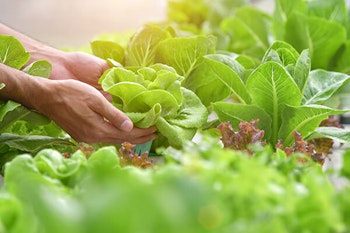
- Better Taste & Nutrition – Freshly harvested organic fruits and vegetables retain more nutrients and richer flavors.
- Chemical-Free Eating – Avoid consuming harmful pesticides and synthetic chemicals.
- Eco-Friendly – Supports soil health, reduces pollution, and encourages biodiversity.
- Cost Savings – Homegrown food reduces grocery bills and minimizes food waste.
Organic vs. Conventional Gardening

Organic Gardening Principles:
- Uses natural fertilizers like compost, manure, and worm castings.
- Controls pests with companion planting and beneficial insects.
- Focuses on soil health and water conservation.
- Encourages biodiversity to maintain a balanced ecosystem.
Conventional Gardening Drawbacks:
- ✖ Uses synthetic fertilizers that degrade soil health over time.
- ✖ Relies on chemical pesticides and herbicides that can be harmful to humans and wildlife.
- ✖ Requires frequent reapplications due to soil depletion.
For the healthiest garden, we recommend using E.B. Stone Organics, Organic Compost and E.B. Stone Chicken Manure to enrich the soil naturally.
How to Start Your Own Organic Garden
Step 1: Choose the Right Location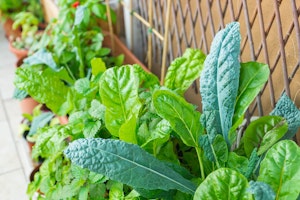
- Select a sunny spot with at least 6–8 hours of direct sunlight per day.
- Ensure good drainage to prevent soggy soil.
- Consider accessibility for easy of watering and maintenance.
- Grow what you love to eat! Visit SummerWinds Nursery for a seasonal selection of veggie and herb starts.
Step 2: Prepare the Soil
Healthy soil is the foundation of a thriving organic garden.
- Add organic matter like compost, aged manure, or worm castings.
- Mix in organic fertilizers such as E.B. Stone Organics - Sure Start for a nutrient boost.
- Avoid synthetic fertilizers that harm soil microbes.

Step 3: Plan Your Garden Layout
- Plant tall crops (e.g., sunflowers, corn) at the back to avoid shading smaller plants.
- Use companion planting to naturally deter pests (see guide below).
- Rotate crops yearly to maintain soil fertility and prevent diseases.
Companion Planting Guide

Best Companion Plants:
- Tomatoes – Thrive with basil, carrots, onions, and marigolds (natural pest deterrents).
- Cucumbers – Grow well with radishes, beans, and sunflowers.
- Lettuce – Pairs with carrots, radishes, and onions.
- Peppers – Benefit from basil, chives, and marigolds.
- Spinach – Enjoys shade from taller plants like beans, peas, sunflowers, and corn.
Natural Pest Repellents:
- Mint – Repels ants, aphids, and flea beetles.
- Garlic – Deters aphids, Japanese beetles, and spider mites.
- Marigolds – Keep away squash bugs, thrips, and whiteflies.
- Nasturtium – Wards off squash bugs and whiteflies.
Organic Weed Control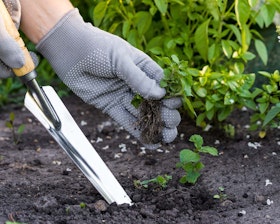
Weeds compete with your plants for nutrients and space. Here are organic methods to keep them at bay:
- Mulching – Use coffee grounds, coco shells, or cedar bark to suppress weeds naturally.
- Corn Gluten Meal – A natural pre-emergent herbicide that prevents weed seeds from sprouting.
- Manual Removal – Pull weeds early before they spread.
Organic Pest Control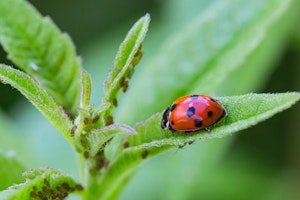
Avoid chemicals by using these eco-friendly solutions:
- Neem Max Oil – Effective against aphids and mites. We recommend Bonide's Captain Jack's Neem Max.
- Bacillus Thuringiensis (Bt) – Targets caterpillars and worms.
- Pyrethrin – A natural insecticide safe for organic gardens.
- Beneficial Insects – Introduce ladybugs & praying mantises to control harmful pests. We carry Tip Top Beneficials when available.
Can You Transition a Non-Organic Plant to an Organic Garden?
 Yes! A plant that was originally grown conventionally can adapt to organic care over time. Here’s what to expect:
Yes! A plant that was originally grown conventionally can adapt to organic care over time. Here’s what to expect:
- Soil Influence: Organic amendments help cleanse residual chemicals from the plant’s environment.
- Pest & Disease Resistance: Over time, the plant will develop natural resilience.
- Produce Quality: Future harvests will be free from synthetic inputs.
- Seed Harvesting: Seeds collected from the plant will grow completely organic in future generations.
To ensure a smooth transition, plant it in organic soil, use compost-based fertilizers, and rely on natural pest control methods.
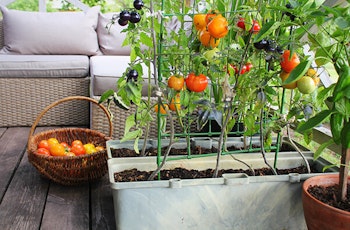
Growing an Organic Container Garden
Short on space? Try organic container gardening:
- Choose the Right Pot – Use deep containers with drainage holes.
- Select Compact Varieties – Look for dwarf tomatoes, peppers, lettuce, and herbs.
- Use Quality Organic Potting Mix – Avoid soil with synthetic additives.
- Ensure Proper Watering – Use self-watering pots or drip irrigation.
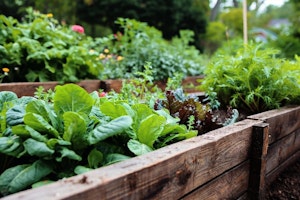
Final Thoughts
Growing an organic garden is one of the most rewarding and sustainable choices you can make. Whether you're planting in raised beds, a backyard, or a small balcony, using organic gardening methods ensures healthier food, a greener planet, and tastier meals.
Ready to start your organic gardening journey? Visit SummerWinds Nursery for expert advice and premium organic supplies!

